KYC policy sets a new standard for ukrainian advocates
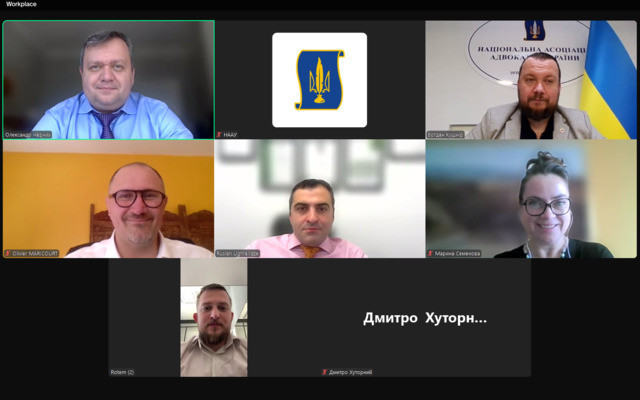
An advocate cannot work with someone they do not know. But how can you identify a client, verify their integrity, and not violate ethical boundaries? In some jurisdictions, KYC (Know Your Client) standards are already in place for this purpose. This policy is gradually being introduced into Ukrainian practice.
On May 21, the Ukrainian National Bar Association held a webinar entitled «Implementing KYC Policies - Know Your Client in Everyday Practice: Ukrainian and International Experience». The event was initiated by the UNBA representative in Scotland, the United Kingdom of Great Britain and Northern Ireland, Oleksandr Chernykh (who also moderated the event) and the UNBA Committee on Advocacy Practice.
The webinar focused on the practical aspects of implementing KYC policies in the daily work of an advocate. From identifying clients and verifying their integrity to assessing ethical risks and responding to suspicious requests.
Participants discussed the adaptation of international KYC standards to Ukrainian realities, particularly in the context of European integration, increased transparency requirements for legal services, and financial monitoring. They talked about differences in client onboarding in different jurisdictions, the relationship between KYC policy and financial monitoring, working with open sources and sanctions registries, and grounds for refusing to provide legal assistance.
A practical model for implementing KYC policies was presented by the UNBA representative in France, Marina Semenova. She outlined five key stages that can already serve as a guideline for advocates in Ukraine.
The first is the start of cooperation: identifying the person, checking the client's integrity, and identifying conflicts of interest. The second is onboarding, during which it is important not only to collect documents but also to comply with ethical standards: inform the client about the terms of cooperation and sign a written agreement. At the third stage, it is necessary to distinguish between KYC policy and financial monitoring requirements: while the former is an initiative of the advocate, the latter is their duty in the event of suspicious transactions.
According to M. Semenova, special attention should be paid to the sources of information collection and verification – this is the fourth stage. Such sources include open sanctions registers, the Unified State Register, and OSINT tools. Finally, the fifth stage is the decision to provide or refuse legal assistance. The grounds for refusal may include the inability to identify the client, the dubious content of the request, the lack of appropriate qualifications, or ethical risks.
«KYC is not only a legal compliance tool, but also part of the professional culture of a modern advocate. It protects not only the client, but also the advocate himself from reputational, disciplinary, and criminal risks», - concluded M. Semenova.
A comparative perspective on KYC was presented by London solicitor Ruslan Ugrildze. He emphasized the strict requirements of British law: an advocate is obliged not only to identify the client and check whether they are on sanctions lists, but also to find out the sources of funding and assess the authenticity of the request for legal assistance. If the client does not provide the necessary documents, cooperation is impossible. Violation of these rules can have serious consequences for the advocate.
The Ukrainian context was presented by the chairman of the UNBA Committee on Advocacy, Bogdan Kushnir. According to him, KYC procedures are being gradually introduced in Ukraine, including in cooperation with the free legal aid system. He emphasized that thorough client verification is not a bureaucratic formality, but an effective safeguard that allows advocates to avoid involvement in manipulation, especially in a state of martial law.
The French experience was outlined by Olivier Maricourt, Doctor of Public Law and advocate from Lille. In France, client verification begins even before the official conclusion of the agreement: it is at this stage that not only the identity of the client is established, but also the existence of any conflicts of interest. If such a conflict is identified, the advocate is obliged to refuse to provide services.
«The introduction of KYC policies in Ukrainian legal practice will not only be a response to the challenges of financial integrity, but will also be a sign of the professionalization of legal services, - commented O. Chernykh on the results of the webinar. - After all, as international experience shows, KYC procedures help strengthen trust in the legal profession, increase accountability, and protect advocates themselves from becoming involved in risky legal relationships. Therefore, the development of KYC practices in Ukraine requires not only regulatory regulation but also systematic educational work».
Popular news

Self-government
BCU selected candidates for membership of the Competition Commission for the selection of members of the HQCJ
In accordance with Article 95-1 of the Law of Ukraine «On the judicial system and status of judges», the Bar Council of Ukraine proposed three candidates to the High Council of Justice for consideration as members of the Competition Commission to conduct a competition for the position of member of the High Qualification Commission of Judges of Ukraine under the BCU quota.
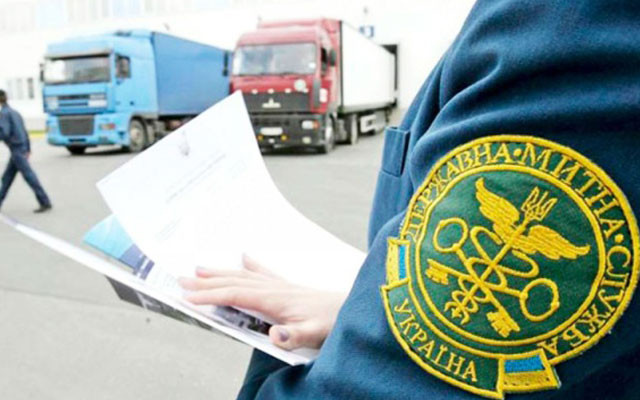
Legislation
DIC and customs control: advocates warn against the risks of draft law No. 13421
Ukrainian defense companies face bureaucratic delays in importing components, which could critically affect the timing of government contracts. At the same time, the mechanism proposed in the Verkhovna Rada creates risks that could outweigh the potential benefits for the industry.
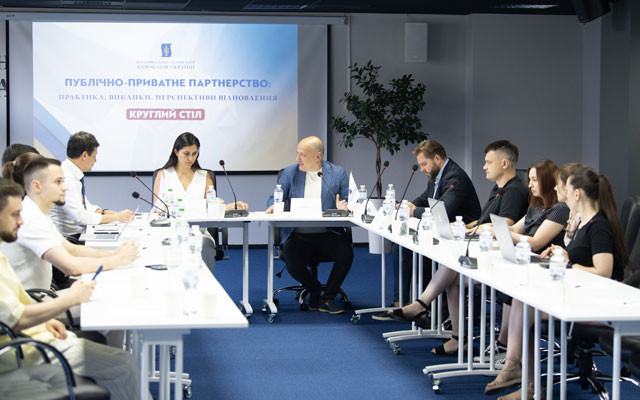
Discussion
Partnership for reconstruction: UNBA discusses new law on PPPs
Public-private partnerships are considered one of the key tools for Ukraine's recovery, but in practice, their mechanisms remain complex, poorly understood, and often ineffective.

Guarantees of the practice of law
Defended police officers — ended up in the army: advocate mobilized while performing his duties
An advocate specializing in defending the rights of law enforcement officers and who had repeatedly won cases against the police was mobilized while performing his professional duties. The day before, a report appeared in the Oberig registry stating that he had violated military registration rules, and his current deferral was canceled. The advocate was detained, taken to the TCC and the SS, beaten and sent to a military unit.
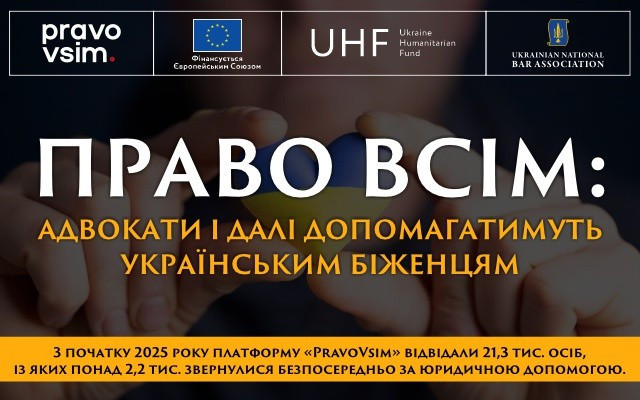
Support
Ukrainians will be assisted in submitting applications to the RD4U damage registry
Ukrainians who have suffered damage as a result of Russian aggression can receive free assistance in preparing applications to the Register of Damage for Ukraine (RD4U). This support is being provided by the legal platform PravoVsim.

Announcements
The BCU has begun accepting documents from candidates for the Competition Commission for the selection of members of the HQCJ
The Bar Council of Ukraine announces the start of accepting documents from candidates who wish to be elected to the Competition Commission for the selection of members of the High Qualification Commission of Judges under the BCU quota.
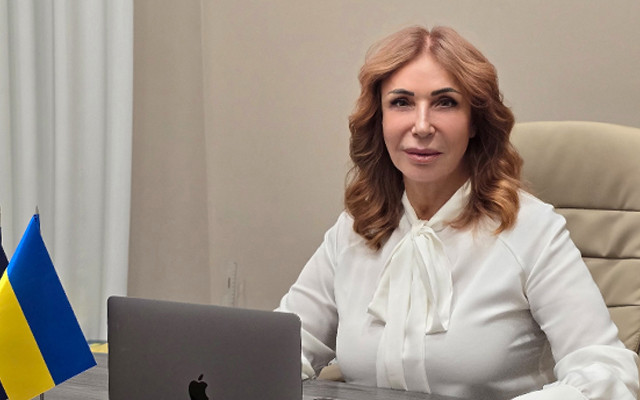
Legislation
Venice Commission warned of risks of changes to disciplinary procedures for Ukrainian judges
The European Commission for Democracy through Law (Venice Commission) and the Council of Europe Directorate for Human Rights and Rule of Law are preparing an assessment of draft laws concerning the judicial system and the status of judges in Ukraine.

Announcements
Ukrainian advocates invited to Bonn for internship
Young Ukrainian advocates specializing in civil, commercial, and economic law have the opportunity to participate in an internship program in Germany. The program is organized by the International Legal Cooperation Foundation (IRZ) in cooperation with the Federal Bar Association and the German Bar Association.
Publications

Ihor Kolesnykov A BRIEF SUMMARY REGARDING THE APPLICATION OF THE ORDER ON EXTENDED CONFISCATION IN LATVIA REGARDING FINANCIAL ASSETS OF…

Valentyn Gvozdiy WORKING IN A WAR ZONE

Lydia Izovitova Formula of perfection

Sergiy Vylkov Our judicial system is so built that courts do not trust advocates

Iryna Vasylyk Advocacy in the proclamation of Independence of Ukraine

Oleksandr DULSKY When we cross the border of the Supreme Anti-Corruption Court, we get into another department of the National Anti-Corruption…

Vadym Krasnyk The UNBA will work, and all obstacles and restrictions are only temporary inconveniences

Lydia Izovitova Interview with Lydia Izovitova on the occasion of the 8th anniversary of the founding of UNBA: We are the voice of t…
